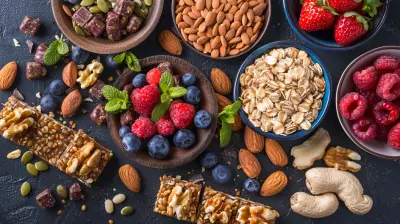Incorporating Fermented Foods for Better Digestion
30 September 2025
When it comes to gut health, there’s a secret weapon many people overlook—fermented foods. These probiotic-rich powerhouses can transform your digestion, boost your immune system, and even improve your mood. But how exactly do they work, and how can you include them in your daily routine? Let’s break it all down in a way that’s easy to digest (pun intended). 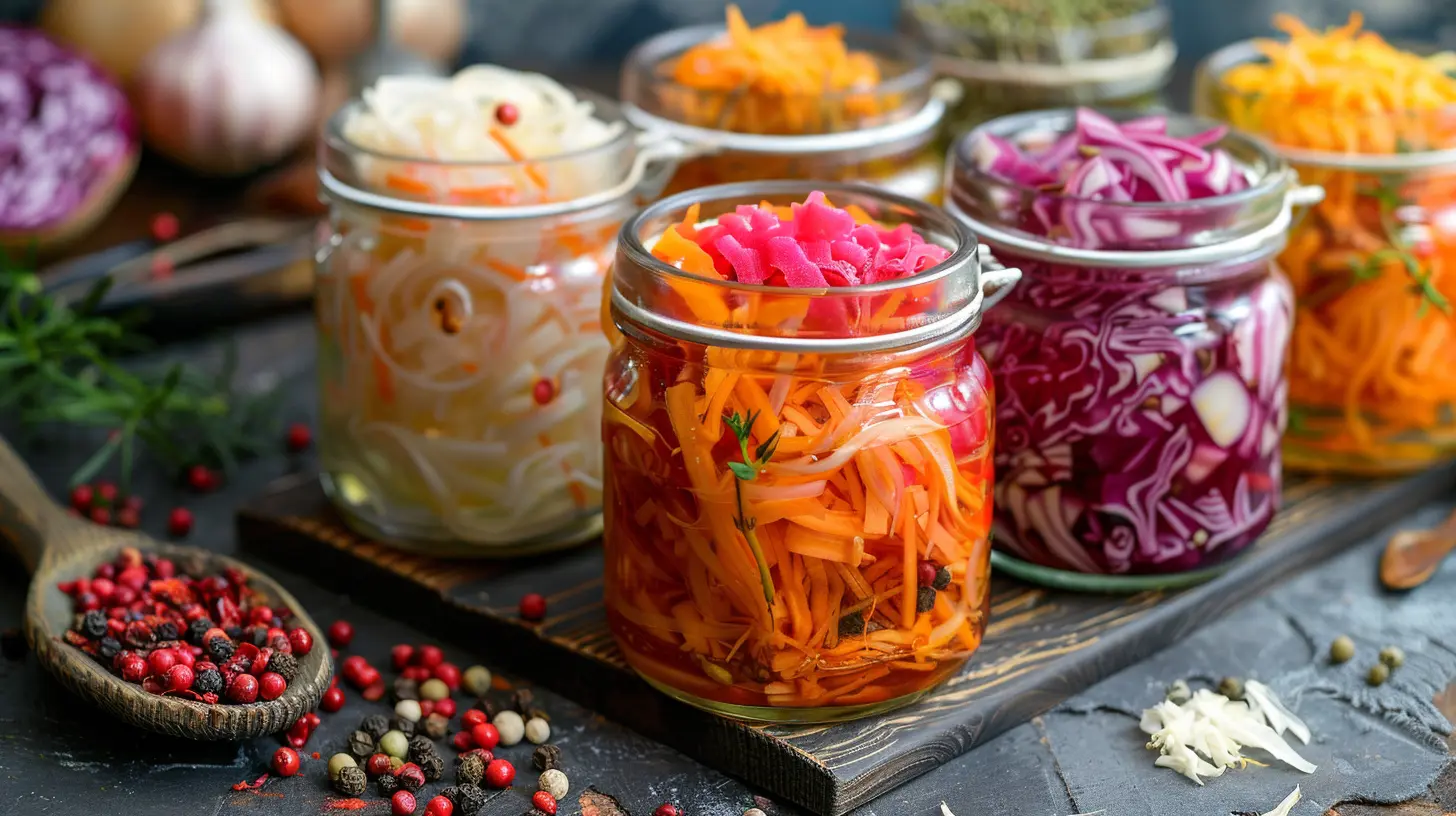
Why Fermented Foods Are a Game-Changer for Digestion
Your gut is home to trillions of bacteria, both good and bad. The goal is to keep a healthy balance, and that’s where fermented foods come in. They’re packed with probiotics—live bacteria and yeasts that help your gut function smoothly.When your gut is happy, everything else follows. You digest food more efficiently, absorb nutrients better, and even experience fewer bloating episodes. Plus, a well-balanced gut can strengthen your immune system and improve mental clarity.
So, why not give your digestive system the backup it needs? 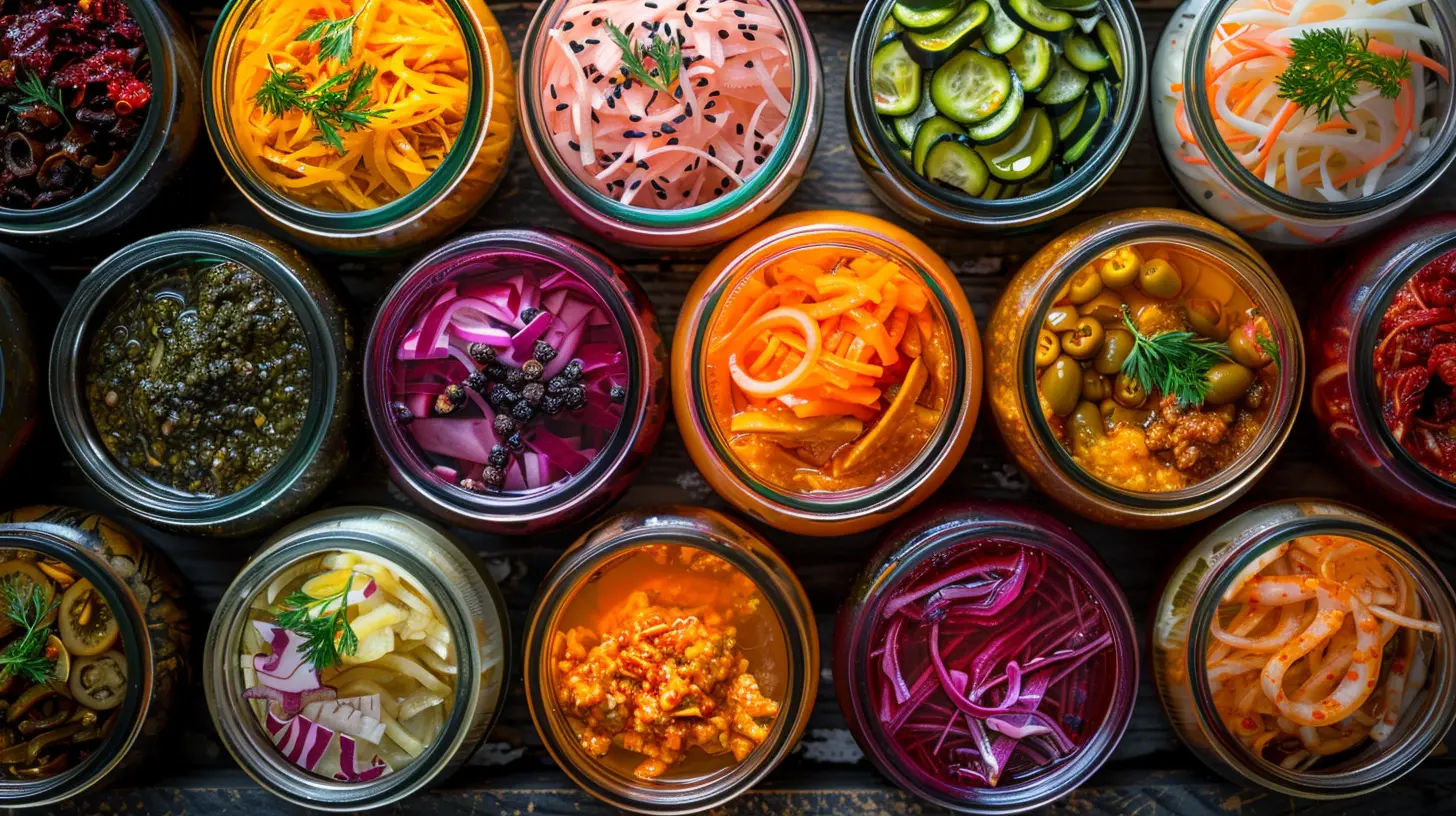
The Science Behind Fermentation and Gut Health
Fermentation is a natural process where microorganisms like bacteria and yeast break down sugars and starches. The result? A food product rich in beneficial probiotics, vitamins, and enzymes that support digestion.Here’s how they make a difference in your gut:
1. Boosts Good Bacteria – Fermented foods introduce beneficial bacteria into your gut, helping to balance your microbiome.
2. Enhances Nutrient Absorption – Certain fermentation processes make nutrients more bioavailable, meaning your body can absorb them better.
3. Aids in Digestion – Foods like sauerkraut and kimchi contain enzymes that help break down food, making digestion smoother.
4. Reduces Inflammation – A healthy gut can help lower inflammation, which is linked to issues like IBS, bloating, and even autoimmune diseases.
Clearly, adding fermented foods to your diet is kind of a no-brainer. 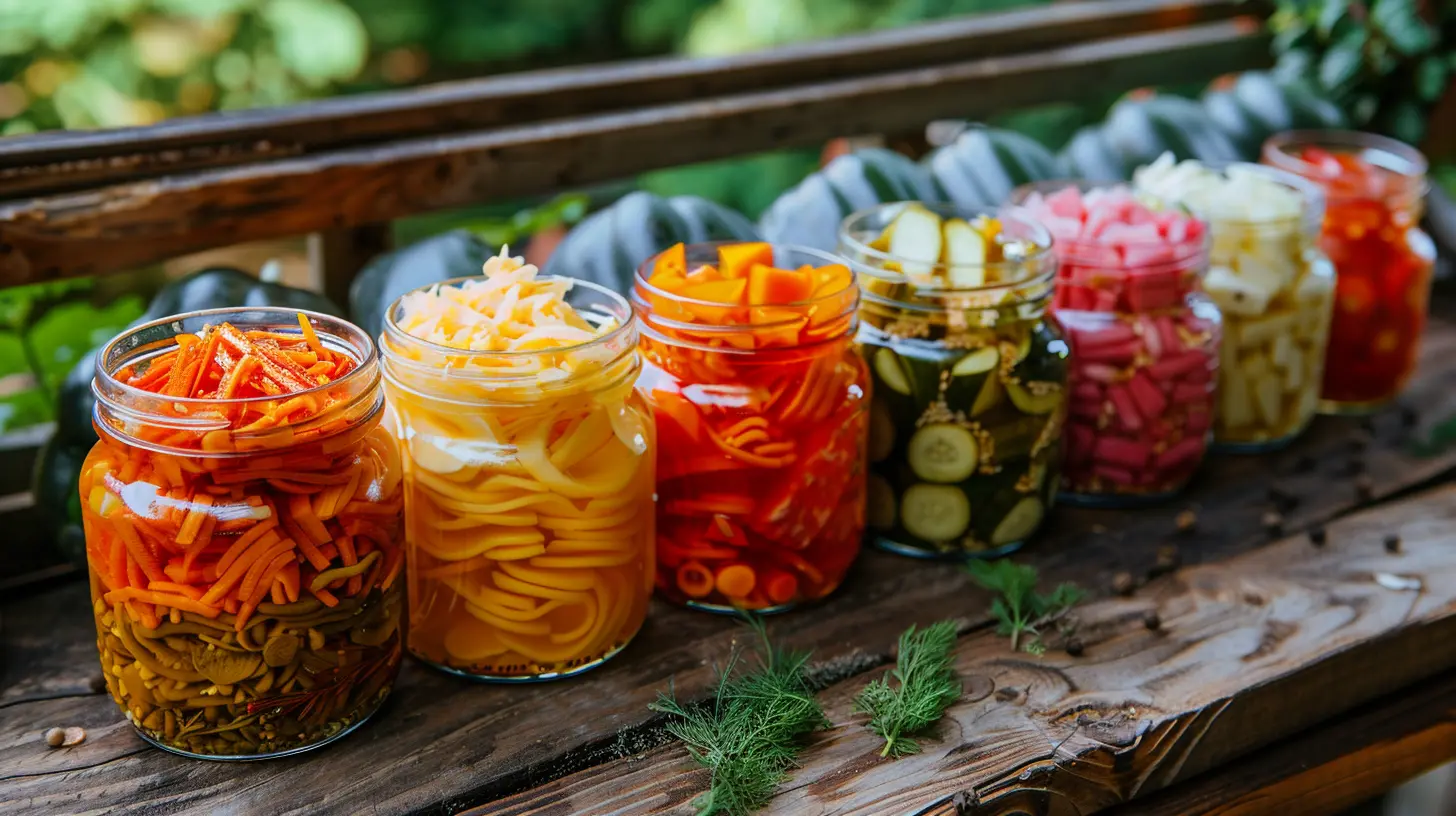
Top Fermented Foods to Add to Your Diet
If you’re new to fermented foods, don’t worry—you don’t have to go all in at once. Start small and see what works for you. Here are some of the best fermented foods for digestion:1. Yogurt – The Classic Probiotic Powerhouse
Yogurt is probably the most well-known fermented food, and for good reason. It’s loaded with probiotics that support gut health, making it a great option for improving digestion. Just make sure to choose varieties with live and active cultures—some store-bought yogurts are packed with sugar and lack beneficial bacteria.2. Kefir – The Stronger, More Potent Version of Yogurt
If yogurt isn’t cutting it, kefir might be your answer. It’s a fermented milk drink with a stronger probiotic punch and a thinner, tangy consistency. Kefir contains more diverse bacteria than yogurt, making it a better option for hardcore gut health enthusiasts.3. Sauerkraut – The Gut-Friendly Cabbage Superfood
This isn’t just a topping for hot dogs. Raw, unpasteurized sauerkraut is brimming with probiotics and fiber, making it a double win for digestion. Just be sure to pick a brand that’s kept in the refrigerated section, as pasteurization kills the beneficial bacteria.4. Kimchi – The Spicy Korean Staple
Kimchi is like sauerkraut’s spicier cousin. Made from fermented vegetables (usually Napa cabbage and radish), it’s packed with probiotics, fiber, and antioxidants. Plus, the spicy kick may help rev up metabolism.5. Kombucha – The Fizzy, Fermented Tea
This trendy drink is made by fermenting tea with a symbiotic culture of bacteria and yeast (SCOBY). It’s slightly sweet, slightly tangy, and full of gut-friendly probiotics. Just watch the sugar content—some brands add a bit too much.6. Miso – The Salty, Umami-Rich Paste
Miso, a fermented soybean paste, is a staple in Japanese cuisine. It’s rich in probiotics and adds a deep, umami flavor to soups, dressings, and marinades. The trick? Avoid boiling it—high heat destroys beneficial bacteria.7. Tempeh – The Fermented Protein Powerhouse
Tempeh is a protein-rich soy product that undergoes fermentation. It’s a great meat substitute and contains probiotics, fiber, and essential nutrients like iron and magnesium.8. Pickles (The Right Kind!)
Not all pickles are created equal. The ones soaked in vinegar don’t have probiotics, while naturally fermented pickles (made with just salt and water) are brimming with gut-friendly bacteria. Always check the label or make them yourself!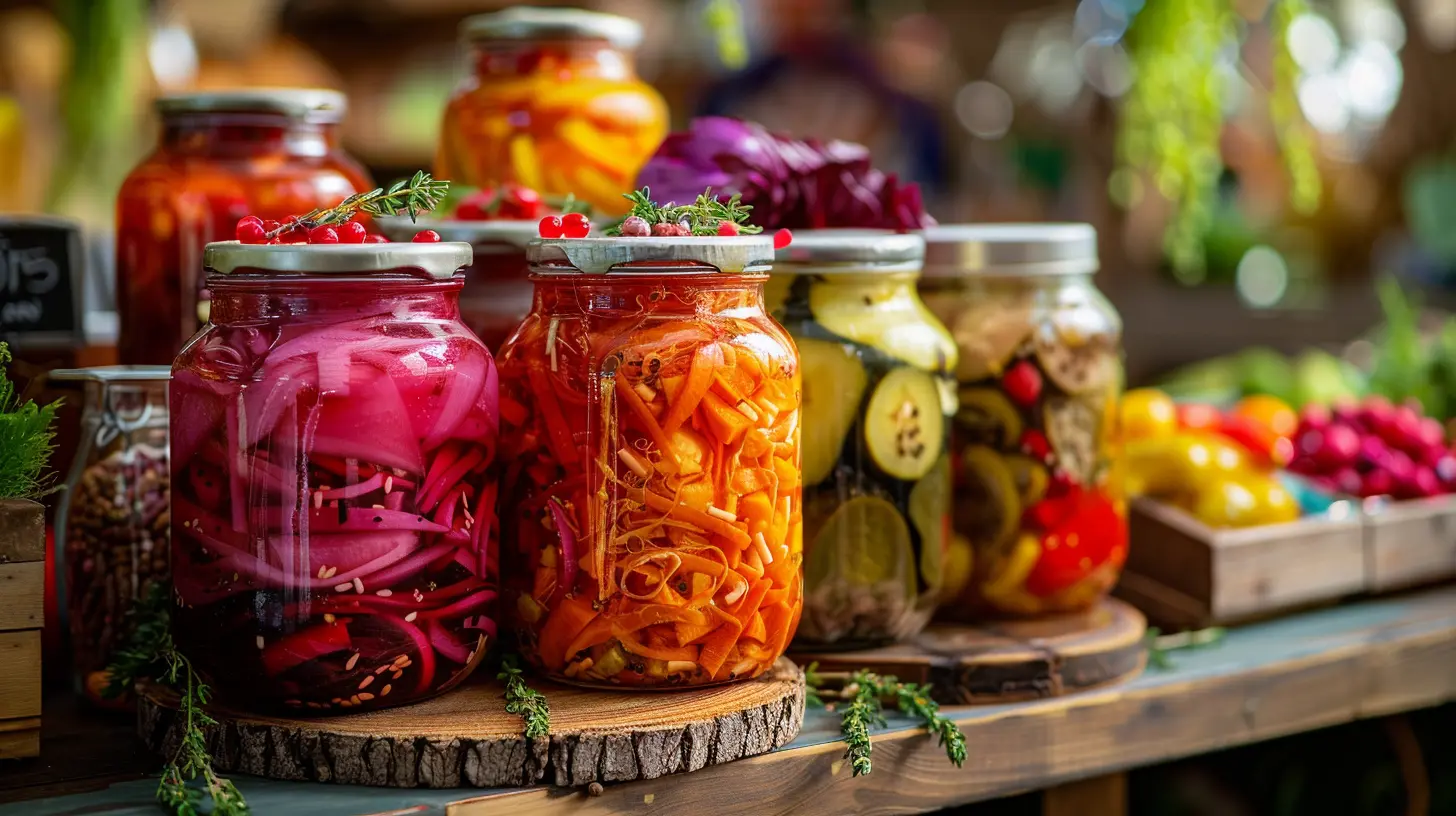
How to Incorporate Fermented Foods into Your Daily Routine
Adding fermented foods to your diet doesn’t have to be complicated. Here are some easy ways to make them a regular part of your meals:- Breakfast: Add kefir or yogurt to your smoothie, or pair it with granola and fruit.
- Lunch: Toss some sauerkraut or kimchi into a salad or on a sandwich.
- Dinner: Use miso in soups, tempeh in stir-fries, or a side of fermented veggies.
- Snacks: Sip on kombucha or snack on probiotic-rich pickles.
- Condiments: Use miso as a dressing base or add a spoonful of fermented salsa.
Remember, moderation is key—going overboard on fermented foods too quickly can lead to bloating or digestive discomfort. Start slow and listen to your gut (literally).
Common Mistakes to Avoid
While fermented foods are amazing for digestion, some mistakes can sabotage your efforts. Here’s what you should watch out for:1. Choosing Pasteurized Versions – Many store-bought fermented foods are pasteurized, which kills off the beneficial bacteria. Always check for "live and active cultures" on the label.
2. Starting Too Fast – If you’re new to probiotics, ease into it. Too much too soon can cause bloating and discomfort.
3. Overloading on Sugary Varieties – Some yogurts and kombuchas have more sugar than a candy bar. Opt for unsweetened or low-sugar options.
4. Not Pairing Them with a Balanced Diet – Fermented foods work best when combined with a fiber-rich, whole-food diet.
Wrapping It Up
Your gut works hard every day, so why not give it a little love? Incorporating fermented foods into your diet is one of the best ways to improve digestion naturally. From yogurt to kimchi to kombucha, the options are endless—and delicious.So, start small, experiment with different flavors, and pay attention to how your gut responds. Before you know it, you’ll be well on your way to better digestion, stronger immunity, and a happier belly.
Cheers to gut health!
all images in this post were generated using AI tools
Category:
Healthy EatingAuthor:

Eileen Wood
Discussion
rate this article
1 comments
Malia Ruiz
Love this! Fermented foods are a tasty way to boost digestion!
October 14, 2025 at 2:33 PM

Eileen Wood
Thank you! I'm glad you enjoyed the article. Fermented foods truly are delicious and beneficial for digestion!
